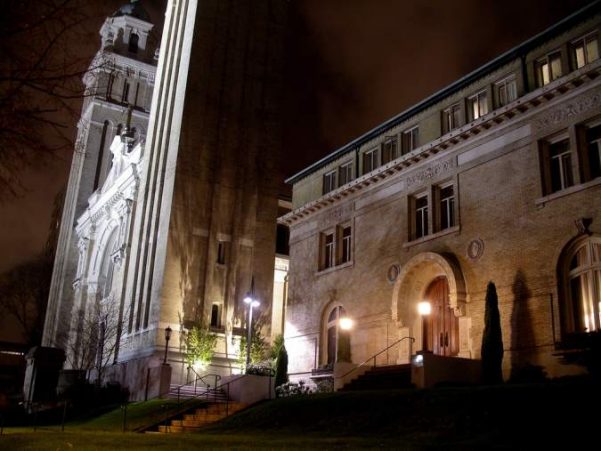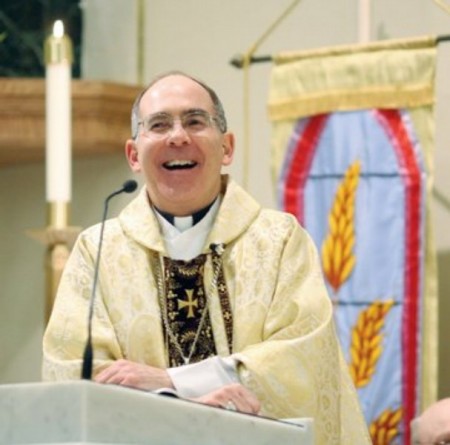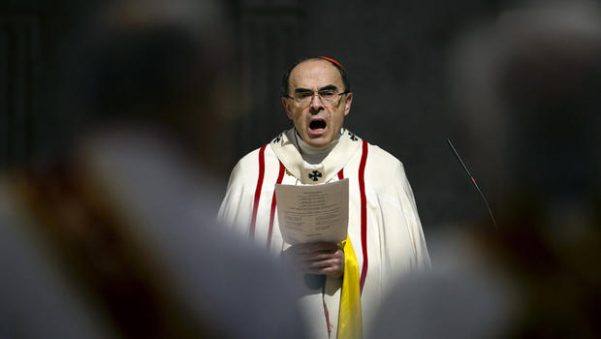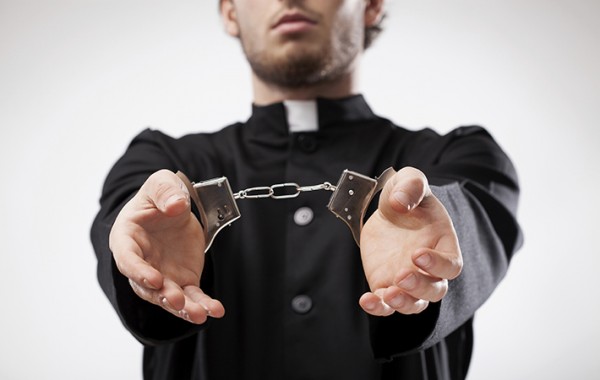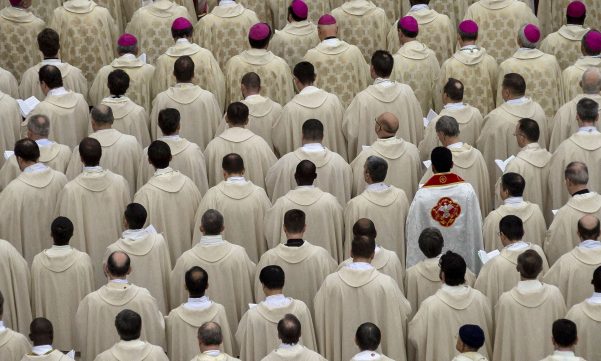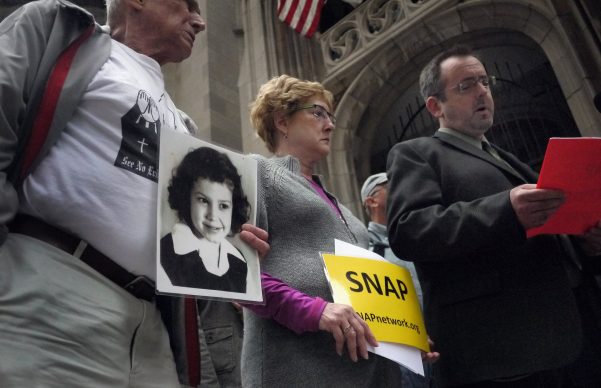By Andrew Duffy
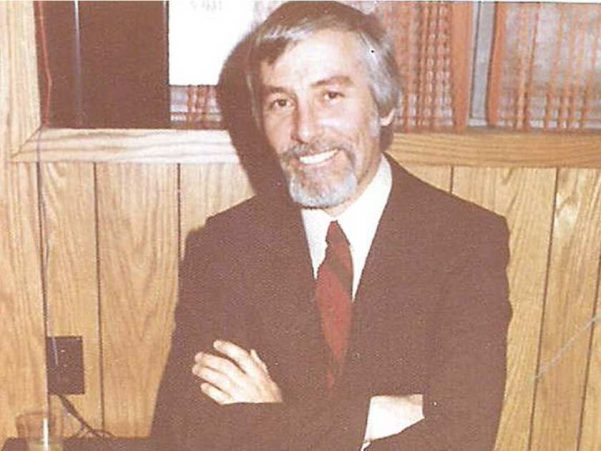
A retired Catholic priest admitted, in an interview with the Citizen, that he sexually abused three young parishioners at Ottawa’s Holy Cross Parish in the 1970s and ’80s.
Rev. Barry McGrory said he was a sex addict who suffered from a powerful attraction to adolescents, both male and female.
Then Archbishop Joseph-Aurèle Plourde, he said, knew of his sexual problems before moving him to a Toronto-based organization dedicated to assisting remote Catholic missions.
Many of the missions were in native communities in Canada’s north.
Four years after leaving Ottawa, in 1991, McGrory was charged with sexually assaulting a 17-year-old native youth.
McGrory told the Citizen he was a victim of his illness, a sexual disorder from which he’s now cured.
“There was this terrible dark side that I had to confront — and I just didn’t handle it well,” McGrory, 82, told the Citizen during an hour-long telephone interview from Toronto, where he now lives as a retired priest.
“It could have been handled much, much better.”
In August 1993, McGrory pleaded guilty to sexual assault in a Toronto courtroom and was given a suspended sentence along with three years’ probation.
In the years after McGrory’s conviction, the Archdiocese of Ottawa settled out of court with two of his Holy Cross victims. One victim was paid $300,000 in one of the the largest settlements of its kind in the history of the diocese.
It negotiated confidentiality agreements with both victims. (A 2011 protocol on clergy sexual abuse, published by the Archdiocese of Ottawa, prohibits such confidentiality agreements unless requested by the victim.)
A third victim of McGrory’s sexual abuse is now suing the diocese for $1.5 million.
McGrory has neither been charged with a crime in Ottawa, nor defrocked by the Vatican.
The Citizen sent the Archdiocese of Ottawa an 11-point memo about this series in search of comment. A spokesman, Deacon Gilles Ouellette, responded: “The archdiocese prefers not to comment at this time.”
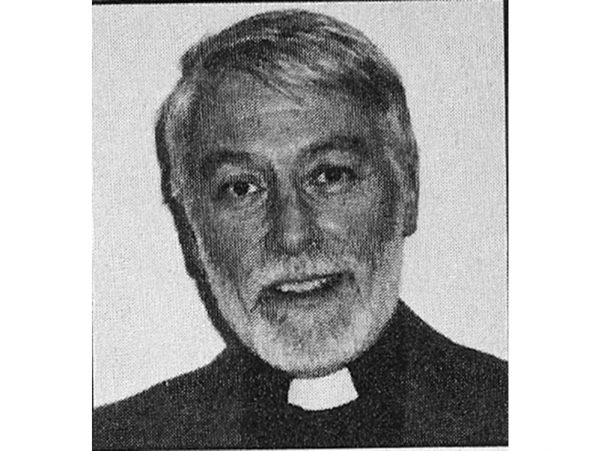
McGrory’s history of abuse at Holy Cross — one of the most disturbing chapters in Ottawa’s clergy sex abuse scandal — has never been publicly exposed until now. It came to light only when the diocese filed court documents as part of a legal dispute with its insurance company earlier this year.
Those documents named the victim, outlined the facts of her case, and revealed details of her $300,000 settlement.
The woman, who signed a confidentiality agreement as part of her 1997 out-of-court settlement, has never spoken publicly about the case.
Some old non-disclosure agreements negotiated by the diocese impose a $50,000 penalty for victims who retell their stories after accepting a settlement.
Court documents reveal her abuse began when the girl was 13-years-old in 1975 and continued for five years at Holy Cross Parish, where McGrory was pastor.
The Citizen, after investigating the claims, tracked McGrory to a condominium in Toronto’s fashionable Distillery District. He admitted to having a sexual relationship with the teenager.
Asked how many young people he sexually abused during his clerical career, McGrory demurred: “I have no idea,” he said. “I don’t think I’ve … I’m not going to answer that question. I don’t think … It’s not a very nice question to ask.”
Asked what it’s like to live with his history of sex abuse, McGrory said: “It’s pretty awful, it’s pretty awful. It’s absolutely disgusting, but I believe in a merciful God. And I would not have been able to survive that otherwise. But it was an illness, hebephilia.”
Hebephiles have a strong sexual attraction to adolescents. But the diagnosis is controversial, and hebephilia does not have official status in DSM-5, the American Psychiatric Association’s authoritative guide of mental disorders.
In the 1970s, Rev. Barry McGrory was a rising star in the Catholic clergy.
He was then a high-profile social justice and peace activist who wrote and lectured about human rights in Central America. He travelled frequently to Nicaragua and established a twin parish with St. Francis Xavier Church in Managua. For four years, he contributed to a popular Ottawa radio show, Focus Religion.
Ottawa-born and raised, he held a commerce degree from St. Francis Xavier University, a theology degree from the University of Ottawa, and a PhD in theology from Thomas Aquinas University in Rome. He taught at Bishop’s University in Lennoxville, Que. and St. Paul’s University in Ottawa.
He was also a sexual predator who preyed on troubled young people at Holy Cross Parish.
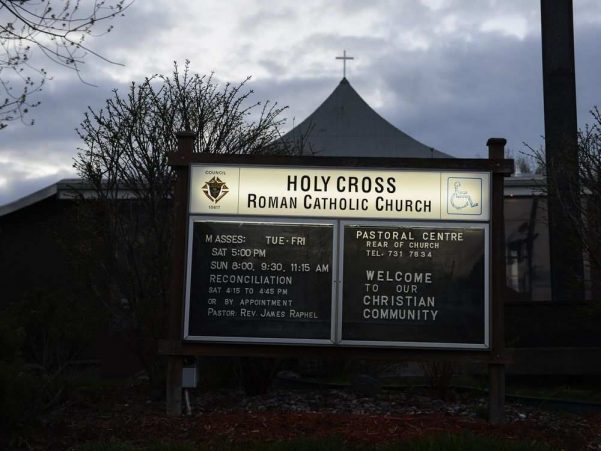
McGrory was pastor of the Walkley Road church from 1974 to 1986.
One girl, Karen (not her real name), a Grade 8 student at Holy Cross Separate School, met McGrory in 1975 when she sought counselling for problems that she was experiencing at home. She was 13-years-old at the time.
A former schoolmate told the Citizen that Karen was both troubled and beautiful. “She had a Katharine Hepburn kind of beauty,” said Jackie Cowan, a former classmate, who now lives in Victoria, B.C.
Court documents suggest McGrory’s abuse of Karen began while she was still in Grade 8.
McGrory insisted to the Citizen the sexual contact began a year later.
Karen’s former lawyer, Frank MacMillan, set out her allegations in a May 1997 letter filed in court by the Archdiocese of Ottawa.
“It will be our client’s evidence that she was seduced by McGrory when she was 13 years of age,” MacMillan wrote, “and thereafter was controlled by McGrory in a daily sexual-touching relationship at the church, which included some 25 instances of vaginal intercourse with physical violence, and an ‘all-the-time routine’ of McGrory’s forced acts of masturbation on Karen.”
Concluded MacMillan: “McGrory took advantage of this impressionable child and sexually abused and exploited her.”
McGrory denied using violence in any of his sexual encounters.
Jackie Cowan said Karen believed McGrory — then in his early-40s —was her boyfriend. He had convinced Karen, she said, that he was in love with her and would marry her one-day.
McGrory denies this.
Eventually, according to court documents, Karen’s parents sought counselling to address their daughter’s “despondent and inexplicable behaviour.” They turned to McGrory for advice.
McGrory suggested to them that Karen’s problems “arose from their lack of parenting skills,” MacMillan said. He recommended that she move out of the house.
“It is our position that McGrory’s counselling was calculated to further alienate Karen from her parents, protect him from discovery, and make her more susceptible to his control,” MacMillan charged.
McGrory denies the accusation and insists that he was close to the girl’s parents. He described them as “great people.”
Jackie Cowan told the Citizen that Karen moved in with her while they were both students at Brookfield High School. She would sometimes accompany McGrory and Karen when they went on drives or out to dinner.
“He (McGrory) was very charming before you saw the other side of him,” she said.
McGrory once came to a birthday party at the apartment Cowan shared with Karen. Cowan retreated to her bedroom, but it was so noisy that she moved to the extra bed in Karen’s room, which was further from the party scene.
Late that evening, Cowan said, McGrory came into the bedroom with Karen. Cowan pretended to be asleep, she told the Citizen, because she didn’t want to be dragged back to the party. Then she watched as McGrory and Karen began to kiss.
“I’m watching this, horrified,” she said, “and then the next thing I know he starts trying to force her to give him a blowjob. She didn’t want to give him a blowjob. So he started getting really angry and then he started banging her head against the wall, trying to force her to give him a blowjob.
“I still remember so vividly his hands on the side of her head, and her hair flying.”
McGrory said he can’t remember the party and denied forcing the teen to perform oral sex.
He repeatedly blamed the victim for “instigating” sexual contact.
Asked how he can blame a teenager for sex acts that happened when he was an adult priest, McGrory said: “That’s a good point. I certainly should take my own responsibility in saying yes to her. I don’t know what else I could have done.”
In her $1.5-million lawsuit, launched in 1996, Karen alleged that the diocese knew of the danger McGrory posed to young people but recklessly ignored it.
The diocese settled the case out of court for $300,000, according to the lawsuit filed by the diocese against its insurance company.
Karen was not the only one victimized by McGrory at Holy Cross.
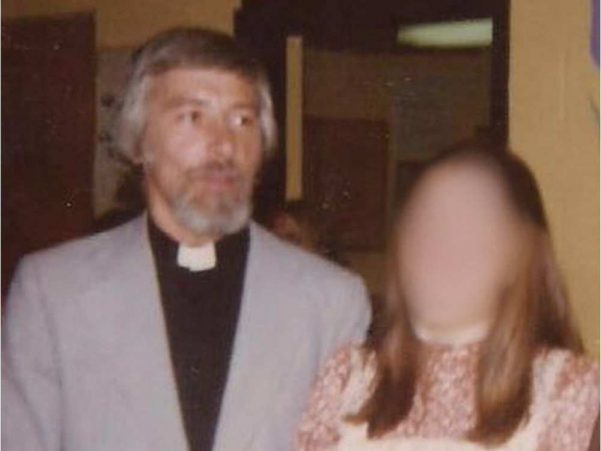
The diocese settled out of court with another young woman, and is now being sued by a man, who alleges that McGrory sexually abused him as a boy during an 11-year period between 1974 and 1985.
McGrory has admitted to abusing the boy. He told the Citizen that his behavior in that case was an exception since the male victim was so young.
“That was a gross and horrific exception, and I’m terribly ashamed of that,” he said. “And I’ve worked very, very hard to get the diocese to do something about it.”
The man, Malcolm (not his real name), attended Holy Cross Catholic School as a boy.
Malcolm first met McGrory after giving a gospel reading at a school mass. According to a statement of claim filed in the case, McGrory praised and encouraged him, then began to insinuate himself into his life.
McGrory, he said, supplied his family with groceries and invited him to dinner at the rectory. At the age of 9 or 10, Malcolm said, McGrory began to offer him wine with dinner.
One evening, after several glasses of wine, McGrory escorted him to a bedroom, undressed him, touched his genitals, and performed oral sex, according to the statement of claim.
Malcolm was upset and ashamed, the claim alleges, but he continued to accept invitations from McGrory. The pattern repeated itself at subsequent dinners.
“Once (Malcolm) was intoxicated, he would invite him to a private space in the rectory and subject him to various sexual acts,” the statement of claim says.
The alleged acts took place both in the church rectory and at a cottage in Val-des-Monts.
Once, when he was 13 or 14, Malcolm returned home intoxicated from an outing with McGrory and driving the priest’s car. His mother called then Archbishop Joseph-Aurèle Plourde’s office.
Unable to reach the archbishop, she went to his office and demanded to see him. “He refused to meet with her and ordered his staff to forcibly remove her from his office,” the statement of claim alleges.
The sexual abuse continued throughout Malcolm’s teenage years, and only ended when he moved from Ottawa at the age of 20, according to the claim.
The allegations made in Malcolm’s statement of claim have not been proven in court.
McGrory told the Citizen that Plourde was aware of his predilection for adolescents.
“I do remember talking to Bishop Plourde, and I told him that I was attracted to these young people, and I said, ‘The problem is they’re attracted to me.’
“He said, ‘Well, that’s because they feel your love for them.’ And I thought, ‘Oh, wow, how does he know that?’”
McGrory could not pinpoint the date of his conversation with Plourde, who retired as archbishop of Ottawa in 1989.
McGrory said he also wrote Plourde a letter in 1986 or 1987 in which he asked for treatment and said he’d “pay any price” to get rid of his affliction. He did not get a response from Plourde, and McGrory said he regrets not being more explicit in his demands for help.
“I’ll never understand Archbishop Plourde, why he sent me to Toronto. Maybe he just wanted to get rid of me,” said McGrory.
Plourde died in January 2013.
McGrory left Ottawa on sabbatical in 1986. The following year, he was named president of a Roman Catholic organization — now known as Catholic Missions in Canada — dedicated to fostering the faith in remote communities.
After his 1993 criminal conviction, McGrory received treatment for his alcoholism and sex addiction at Southdown Institute, north of Toronto.
A 12-step program cured him of his sexual disorder, and God has since allowed him to find inner peace, he said.
During the past two decades, McGrory has continued to pursue his passion for social justice as a volunteer at the Don Jail, as an international peace activist, and as a native rights advocate.
In June 1998, McGrory appeared before a Queen’s Park committee and launched a broad attack on the then Conservative government and its “persecution of the most vulnerable and the most helpless among us” — mothers, children, aboriginals, and the poor.
Later, in an exchange with an MPP, McGrory demanded the kind of accountability from the government that he said he would one day deliver before God.
“I’ll face my maker,” he vowed. “I want to be judged and I expect to be accountable for everything I’ve done, and I won’t shirk it. I can’t shirk it. I don’t expect to shirk it.”
Complete Article HERE!

